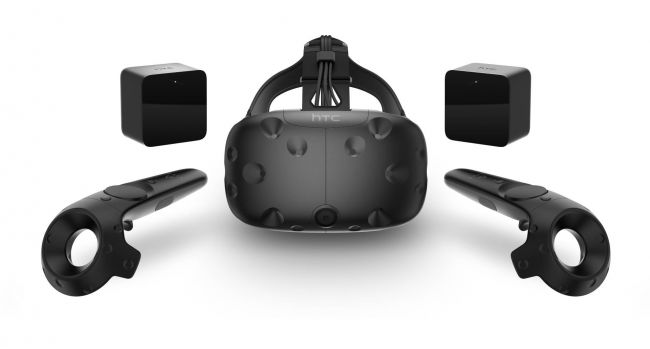HTC talks Vive and lack of AAA games for VR
It's been a good year for VR.

HTC is still keeping mum about exactly how many Vive headsets it has managed to ship to customers, but speaking broadly, HTC's GM of Vive Dan O'Brien said the company met its sales targets and is "very happy" with the numbers.
"We don't release our numbers publicly, but we're actually very happy with it," O'Brien told GamesIndustryBiz in an interview "We've also started to really penetrate the non-game space and the enterprise space, and all those cases. We knew those areas would pick up as game developers actually solved problems like locomotion, movement, and social cooperative experiences."
The Vive came to market in April 2016. O'Brien says that was a kick-off year for Vive, with 2017 being an "ecosystem year where we turn our attention to partners to come work with us." That was the reason HTC released its Tracker tool, and also the motivation behind Viveport, HTC's own app store, O'Brien says.
One of the criticisms associated with not just the Vive but VR headsets in general is the lack of AAA games. Joel Breton, VP of global VR content at HTC, said that's due to the time required to build big games with high-production values.
"Being 15 or 15 months into commercial launch, there's a lot of stuff in the oven that hasn't been announced that we're salivating to see what the reaction is," Breton explains. "But there's a lot of stuff that has been announced."
He also said that pretty much every AAA company now has a dedicated VR team, insinuating it's only a matter of time before we see a deluge of blockbuster releases for VR headsets.
The lack of popular games is no the only criticism associated with the Vive. Like the Rift, it requires a physical connection to a PC. That too is going to change.
Keep up to date with the most important stories and the best deals, as picked by the PC Gamer team.
"We understand now much more clearly the challenge to wireless and nausea and latency," O'Brien said. "Those were math problems to solve, and it took a little while to get through those. I actually didn't think in year one there would be a laptop that would support VR. By the end of the year, I think there were nine, and there are even more this year."
It makes sense that HTC would be upbeat about VR, and specifically the Vive. However, GamesIndustryBiz missed an opportunity to ask a more pressing question, and is that HTC thinks about the Oculus Rift and Touch controller bundle dropping to $499 (currently on sale for $399). Price is perhaps the biggest barrier to high-end VR headsets, and Oculus seems to be tackling the issue head on.
As for HTC, we will have to wait and see if it lowers the price of its Vive headset to match the Rift. That could have a big impact on sales figures going forward. Back in November of last year, HTC president Chia-lin Chang said the number of Vive shipments was "much more" than the 140,000 figure that was floating around. More recently, it was reported by VentureBeat that HTC sold 95,000 Vive headsets in the first quarter of 2017. Both it and the Rift trailed behind less expensive solutions, such as Samsung's Gear VR, which sold 782,000 units in the same quarter.
"As we want to get to an early mass [market] and double-digit year-over-year growth numbers, you have to make some more changes to the product," O'Brien added.
HTC has already hinted at building a less expensive VR headset to compete in the mobile space. That is in addition to a second-generation Vive, that is also in the works.
Paul has been playing PC games and raking his knuckles on computer hardware since the Commodore 64. He does not have any tattoos, but thinks it would be cool to get one that reads LOAD"*",8,1. In his off time, he rides motorcycles and wrestles alligators (only one of those is true).


